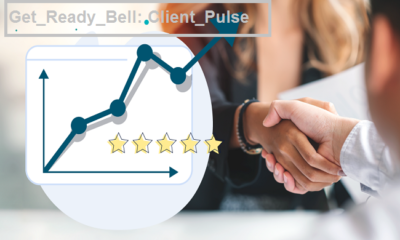In today’s digitally driven BIQL landscape, harnessing the power of data has become paramount for businesses aiming to thrive in competitive markets. Amidst the myriad of tools and methodologies available, BIQL (Business Intelligence Query Language) stands out as a beacon of clarity amidst the sea of data ambiguity. In this comprehensive guide, we delve deep into decoding BIQL, equipping you with the knowledge and insights to leverage data effectively for strategic decision-making and operational excellence. In the realm of data analytics and business intelligence, the emergence of BIQL has been nothing short of revolutionary. BIQL, short for “Business Intelligence Query Language,” represents a leap forward in the way businesses interact with and extract insights from their data repositories.
Understanding the Essence of BIQL
BIQL serves as a powerful conduit between raw data and actionable insights. Unlike traditional data querying languages, BIQL transcends boundaries by offering a seamless integration of business logic and data analysis. At its core, BIQL empowers users to formulate complex queries, extract relevant data subsets, and derive meaningful insights through an intuitive and user-friendly interface.
Demystifying BIQL Syntax
Querying with Precision
At the heart of BIQL lies its robust syntax, designed to facilitate precise data retrieval and analysis. Leveraging a combination of familiar SQL constructs and proprietary extensions, BIQL enables users to articulate queries with unparalleled accuracy and efficiency. From simple data aggregations to sophisticated predictive analytics, BIQL’s syntax empowers users to unlock the full potential of their data assets.
WHAT DOES BIQL STAND FOR?
BIQL stands for Business Intelligence Query Language. It serves as a specialized language designed to facilitate querying and analysis of business data.
HISTORY AND ORIGINS OF BIQL
BIQL has its roots in the evolving landscape of business intelligence tools and technologies. As businesses grappled with increasing volumes of data and the need for more intuitive querying methods, BIQL emerged as a solution to bridge the gap between complex datasets and end-user accessibility.
KEY FEATURES OF BIQL
Natural Language Processing
One of the standout features of BIQL is its natural language processing capabilities. Unlike traditional query languages that require specific syntax and commands, BI,QL allows users to interact with data using everyday language, making it more accessible to a broader range of stakeholders.
Advanced Query Capabilities
BIQL offers advanced querying capabilities, enabling users to perform complex analyses with relative ease. From simple aggregate functions to sophisticated predictive modeling, BI,QL empowers users to extract meaningful insights from their data.
Integration With Other Systems
BIQL is designed to seamlessly integrate with other systems and platforms, allowing for streamlined data workflows and enhanced interoperability across the organization.
Harnessing the Power of Functions
Central to BIQL’s versatility are its extensive library of functions, tailored to address a myriad of analytical scenarios. Whether performing trend analysis, forecasting future performance, or detecting anomalies within datasets, BI-QL offers a rich array of functions to suit every analytical need. By harnessing the power of functions, users can streamline their analysis workflow and extract actionable insights with ease.
APPLICATIONS OF BI-QL
BIQL finds applications across various domains, including:
Business Intelligence
BIQL enables businesses to gain actionable insights from their data, driving informed decision-making and strategic planning.
Data Analytics
BI,QL facilitates advanced data analysis, empowering organizations to uncover trends, patterns, and correlations hidden within their datasets.
Customer Relationship Management
BI-QL can be leveraged to analyze customer behavior, preferences, and satisfaction levels, enabling businesses to tailor their marketing strategies and improve customer engagement.
Financial Analysis
BI,QL enables financial analysts to perform in-depth analyses of financial data, identify key performance indicators, and assess the overall health of the organization.
BENEFITS OF USING BIQL
Simplicity And Ease Of Use
BIQL’s intuitive interface and natural language processing capabilities make it easy for users of all skill levels to query and analyze data effectively.
Time Efficiency
By streamlining the querying process and eliminating the need for complex syntax, BI-QL helps users save time and resources, allowing them to focus on deriving insights from their data.
Enhanced Decision Making
BIQL empowers decision-makers with timely and accurate information, enabling them to make informed decisions that drive business growth and innovation.
Improved Data Accessibility
BI,QL democratizes data access within the organization, allowing stakeholders from various departments to explore and analyze data independently, without relying on IT or data science teams.
Navigating BI-QL Workflows
Data Preparation and Cleansing
Before embarking on any analytical endeavor, it’s imperative to ensure that data is clean, consistent, and devoid of anomalies. BI-QL facilitates this process through its robust data preparation and cleansing capabilities. From data profiling and validation to outlier detection and transformation, BIQL equips users with the tools to ensure data integrity and reliability throughout the analysis lifecycle.
CHALLENGES AND LIMITATIONS OF BI-QL
Complexity For Beginners
While BI,QL offers numerous benefits, its complexity may pose challenges for users who are new to querying and data analysis.
Dependency On Data Quality
The effectiveness of BIQL relies heavily on the quality and integrity of the underlying data. Poor data quality can lead to inaccurate results and flawed decision-making.
Cost Considerations
Implementing BI,QL may require significant investments in terms of software licenses, training, and infrastructure, which could be a deterrent for some organizations.
BIQL VS. TRADITIONAL QUERY LANGUAGES
Compared to traditional query languages such as SQL, BI,QL offers a more user-friendly and intuitive querying experience, making it accessible to a broader audience beyond data professionals.
FUTURE TRENDS AND DEVELOPMENTS IN BI-QL
The future of BIQL is poised for continued innovation, with advancements in natural language processing, machine learning, and AI-driven analytics expected to further enhance its capabilities.
Exploratory Data Analysis (EDA)
Once data is cleansed and prepared, the next step involves conducting exploratory data analysis to uncover hidden patterns, trends, and correlations. BIQL simplifies this process through its intuitive visualization capabilities, allowing users to gain insights at a glance. Whether plotting time series data, creating scatter plots, or visualizing multi-dimensional datasets, BIQL offers a plethora of visualization options to suit every analytical need.
Leveraging BIQL for Strategic Decision-Making
Driving Business Intelligence
In today’s fast-paced business environment, timely decision-making is critical for maintaining a competitive edge. BIQL serves as a catalyst for business intelligence, empowering stakeholders with real-time insights to drive strategic initiatives and seize emerging opportunities. By leveraging BIQL’s analytical prowess, organizations can gain a holistic view of their operations and make informed decisions that propel growth and innovation.
Unleashing Predictive Analytics
Beyond descriptive analytics lies the realm of predictive analytics, where BI-QL truly shines. By leveraging historical data and advanced statistical models, BI-QL enables organizations to forecast future trends, anticipate customer behavior, and mitigate potential risks. From demand forecasting to predictive maintenance, BI-QL offers a myriad of predictive analytics capabilities to help organizations stay ahead of the curve.
BIQL IMPLEMENTATION BEST PRACTICES
When implementing BI-QL within an organization, it’s essential to:
- Define Clear Objectives: Clearly articulate the goals and objectives of BI,QL implementation to ensure alignment with business priorities.
- Provide Adequate Training: Invest in comprehensive training programs to equip users with the skills and knowledge needed to leverage BI,QL effectively.
- Ensure Data Quality: Prioritize data quality initiatives to maintain the integrity and reliability of the underlying data.
- Promote Collaboration: Foster a culture of collaboration and knowledge sharing to maximize the value derived from BI,QL across the organization.
BI-QL TRAINING AND RESOURCES
Numerous training resources and online courses are available to help users learn BI,QL, including:
- Online Tutorials: Websites like Udemy, Coursera, and LinkedIn Learning offer comprehensive tutorials and courses on BI,QL.
- Vendor Documentation: Most BI,QL vendors provide extensive documentation and training materials to support users in learning the platform.
- Community Forums: Participating in online forums and communities dedicated to BI,QL can provide valuable insights and support from experienced users and experts.
CASE STUDIES: SUCCESSFUL BI-QL IMPLEMENTATIONS
Several organizations have successfully implemented BI,QL to drive business transformation and achieve tangible results. Some notable case studies include:
- Company A: By leveraging BI,QL for sales forecasting and customer segmentation, Company A achieved a 20% increase in revenue and improved customer satisfaction scores.
- Company B: Through the implementation of BI,QL for financial analysis and reporting, Company B reduced reporting time by 50% and improved decision-making accuracy.
CONCLUSION
In conclusion, BI-QL represents a significant advancement in the field of business intelligence and data analytics, offering a more intuitive and accessible approach to querying and analyzing data. By harnessing the power of natural language processing and advanced analytics, BI,QL empowers organizations to unlock the full potential of their data and drive informed decision-making BI-QL represents a paradigm shift in the realm of data analytics, empowering organizations to extract actionable insights from complex datasets with unparalleled precision and efficiency. By mastering the intricacies of BI-QL, businesses can unlock the full potential of their data assets and drive innovation in an increasingly data-driven world.
FAQs
What industries can benefit from BI-QL?
BI,QL can benefit a wide range of industries, including retail, finance, healthcare, manufacturing, and telecommunications, among others.
Is BI-QL suitable for small businesses?
Yes, BI,QL can be beneficial for small businesses as well, especially those looking to gain insights from their data without the need for extensive technical expertise.
Can BI,QL be integrated with existing business systems?
Absolutely! BI,QL is designed to seamlessly integrate with various business systems and platforms, ensuring interoperability and smooth data workflows.
How does BI,QL compare to traditional query languages like SQL?
Unlike traditional query languages that require specific syntax and commands, BI,QL offers a more user-friendly interface and natural language processing capabilities, making it accessible to a broader audience.
What are the costs associated with implementing BI,QL?
The costs of implementing BI,QL can vary depending on factors such as software licenses, training, and infrastructure requirements. Organizations should conduct a thorough cost-benefit analysis to determine the overall investment required.

 Blog8 months ago
Blog8 months ago
 Entertainment8 months ago
Entertainment8 months ago
 Tech8 months ago
Tech8 months ago
 Blog8 months ago
Blog8 months ago
 Entertainment8 months ago
Entertainment8 months ago
 Entertainment9 months ago
Entertainment9 months ago
 Lifestyle9 months ago
Lifestyle9 months ago
 Lifestyle9 months ago
Lifestyle9 months ago


